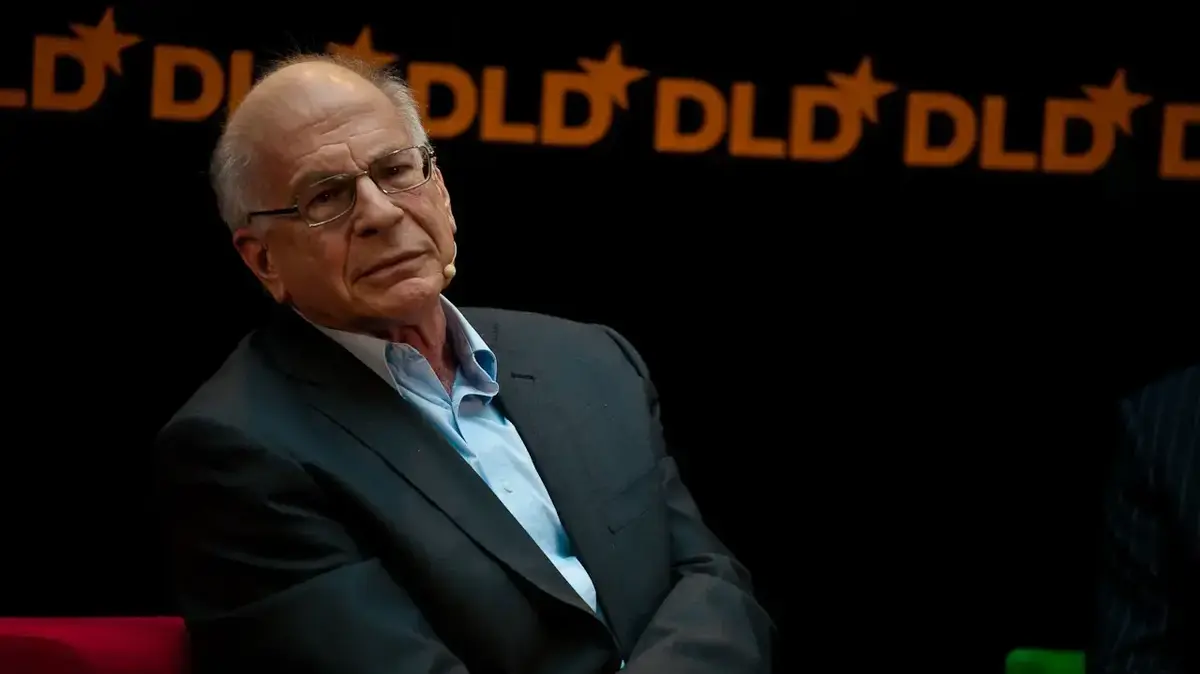On video: announcement of the winners of the Nobel Prize in Economics/photo: Reuters
Prof. Daniel Kahneman, an Israeli-American cognitive psychologist who won the Nobel Prize in Economics in 2002, passed away last night. Kahneman was a pioneer in the study of decision-making and behavioral economics. Kahneman and his partners over the years dealt with how people make decisions in different economic circumstances, why these decisions often seem irrational and far from what economic models predict.
The explanation for this gap was in psychological reasons, for example difficulty to change and "preferring the status quo", inability to contain loss ("loss aversion") which prevents people from taking calculated and justified risks, and how the way things are presented will influence people to make a decision, even when both options that face them the same in terms of the chances of loss and profit.
When he received the Nobel Prize, the decision stated that Kahneman "laid the foundations for a new research field. His main findings are related to the decision-making process in situations of stress and uncertainty, in which he showed how human decisions (in situations of uncertainty) are completely different from those predicted by standard economic models."
In 2013 he received the Medal of Freedom, the highest civilian decoration awarded by the President of the United States. The award is given to those who have made an extraordinary contribution to the United States. Together with Kahneman, Bill Clinton and Oprah Winfrey received it that year.
Kahneman receives the Medal of Freedom from former US President Barack Obama, in 2013/Reuters
The Solidite, aka Doreen Hartman, wrote a farewell post from Mahanman with the things she learned from him.
1. Future regret is the best definition of risk. A wise investor should know how to develop, take place and imagine how he will feel if things do not develop as expected.
2. We don't become smarter or better at predicting the future just because we were just surprised. Errors caused by surprises are due to the fact that the world is difficult to predict. "The right lesson to be learned from surprises is that the world surprises."
3. The easier it is for us to explain the past, the harder it is to accept that the future is difficult to predict.
4. It is easier to spot the errors of others than our own.
5. Humans do not excel at internalizing very large or very small numbers. Lotteries are a good example: huge sums, slim chances.
More in Walla!
Strategic location, spectacular view and luxurious apartments: the intriguing neighborhood being built in the center
In collaboration with Aora Real Estate
6. A change of opinion indicates intellectual growth, and is better than stubbornly holding an existing opinion, even if renouncing that opinion involves reputational damage or sunk costs.
7. Speaking of sunk costs, it is impossible to write a text worth reading, if you are not committed to the complete destruction of a text that is not worth reading.
8. The human brain does not excel at reproducing previous states of knowledge. Once you've adopted a new worldview, you have trouble remembering what you believed in the past.
9. This is also true in a forward-looking way: people have a hard time imagining how their preferences will change in the future. This is why financial goals we set today will seem like they were set for us by a stranger in the future. And precisely because of this, sometimes it is better to give them up and as soon as possible.
10. It is very difficult to expect happiness, let alone quantify it.
11. People don't make decisions based on numbers, but based on stories.
12. "High self-confidence indicates that someone has woven a coherent story in their mind - not that the story is necessarily true."
More on the same topic:
Daniel Kahneman
economy
Nobel prize

